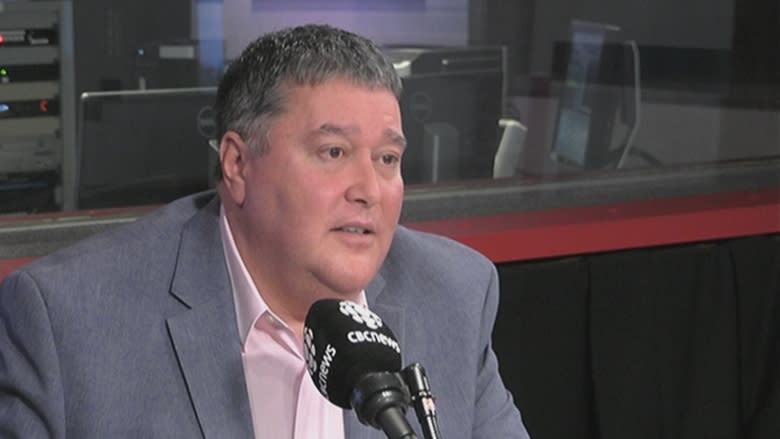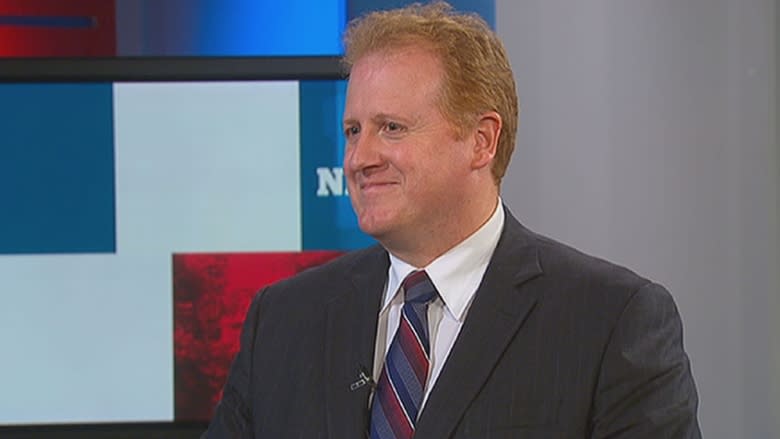'Nothing that's right is easy': Inclusion advocate defends classroom policy
New Brunswick's inclusion policy might not be perfect, but it's doing a lot of good for students across the province, the executive director of the New Brunswick Association for Community Living says.
"It's not the philosophy of inclusion that's not working, it's the practical in the classroom," said Danny Soucy.
Earlier this week, education consultant Paul Bennett said the province's policy of one classroom for everyone is hurting students of all abilities, especially those who could be the highest achievers and those with complex needs.
- Inclusion model a 'race to the bottom,' says policy expert
- Teachers call for changes to inclusion policy for classrooms
But Soucy, whose youngest son has Down syndrome and went through the school system from kindergarten to Grade 12 in an inclusive classroom, said the province's inclusion policy made a world of difference for his own family.
"There were bumps along the road and we worked with the system to make sure all four of my children received the quality they deserved, they had the right to," he said.
New Brunswick's policy of inclusive education, which was last updated in September 2013, requires all students be with their peers in a "common learning environment" and that instruction be primarily provided by the classroom teacher.
Although he applauds the policy, Soucy said it does have its flaws and he has been meeting with government to clarify points of inclusion so everyone is reading the policy in the same way.
"It's making people understand what the Policy 322 is," he said. "Some people are reading that you can't take a child out of the classroom and help him outside of the classroom, to reintroduce him back into the classroom."
In some cases, he said, students are being pulled from the classroom for assessments, while also getting the proper education they need.
Not a funding question
Soucy said the policy isn't an issue of funding but of how education funding is used.
In some areas, he said, there might not be the professionals needed to make assessments so the student has the proper materials to work with or the teacher doesn't have the information about a specific disability or how an individual person learns.
"We need to look at where we're spending the money, how we're spending the money and making sure it's going to the right places."
Earlier this week, George Daley, president of the New Brunswick Teachers' Association, said mixing students who have intellectual disabilities with students who don't can have an impact on overall learning inside the classroom and is a huge issue for teachers.
He said some classes have had to be evacuated because of violent behaviour.
Although it might be difficult, Soucy said the majority of teachers believe in the inclusion policy.
"Education isn't easy and nothing that's right, is easy," he said.
Minister's response
In an emailed statement to CBC news, Brian Kenny, the minister of education and early childhood development, said his department believes that "everyone has the right to learn and work in an environment that values each other's strengths and abilities."
Kenny has been meeting with teachers across the province, listening to their concerns, and has received positive feedback, but he's also aware of certain challenges.
This year, $8.3 million was set aside to support classroom composition, including the addition of 250 school-based teachers over the next two years, who will be working in the areas of methods and resource, guidance, literacy, numeracy, positive mental health support, and assisting with gifted and talented students.
He said inclusion is featured in the 10-year education plan, ensuring that all learners value diversity a strong sense of belonging and that students and educators are provided with safe and welcoming learning environments.
He said the plan also seeks to ensure all learners develop the knowledge, skills and behaviour needed to adapt to and thrive in their environment.
"The government understands that fostering healthy minds and bodies are critical factors for learning and overall success in life," he said.
"That is why supporting the cognitive, physical, social and emotional development of learners who are impacted by various factors of vulnerability is a focus area in our education plans."
But when it comes to safety, he said, the department strongly encourages staff to come forward with concerns.
"This allows challenging situations to be well analyzed and appropriately addressed so that the safety of students and staff remain a high priority," he said.



